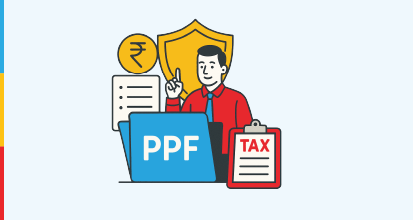Formula for Calculating Compound Interest (with Examples)
The standard formula for compound interest is
A=P(1+n/r)^nt
A = Final amount (including interest)
P = Principal amount (initial investment)
r = Annual interest rate (in decimal form)
n = Number of times interest is compounded per year
t = Number of years
Example 1: Simple Calculation:
Suppose you invest ₹10,000 in a savings account offering an annual interest rate of 5%, compounded annually for 3 years.
A = 10000* (1+5/100)^(1*3)
A=10,000*(1.05)^3
A=10,000*1.1576
A = ₹11,576
So, after 3 years, the investment grows to ₹11,576, with ₹1,576 earned as interest.
Example 2: More Frequent Compounding:
If the same investment is compounded quarterly (4 times a year) instead of annually, the calculation would be:
A = 10,000*(1+ 5/4*100)^(4*3)
A=10,000*(1.0125)^12
A=10,000*1.1610
A=₹11,610
Here, due to quarterly compounding, the final amount is ₹11,610, slightly higher than annual compounding.
Check out this example of an Equity-Linked Savings Scheme (ELSS)
ELSS is a type of mutual fund that helps you save tax while offering the potential for high returns. It primarily invests in equities and equity-related instruments, making it a great option for long-term wealth creation.
Lock-in Period: ELSS funds have a mandatory lock-in period of three years, which is shorter than other tax-saving investment options.
Tax Benefits: Investments in ELSS qualify for tax deductions under Section 80C of the Income Tax Act, up to ₹1.5 lakh per financial year.
Market-Linked Returns: Since ELSS funds invest in stocks, their returns are subject to market fluctuations, but they generally offer higher returns compared to fixed-income investments.















